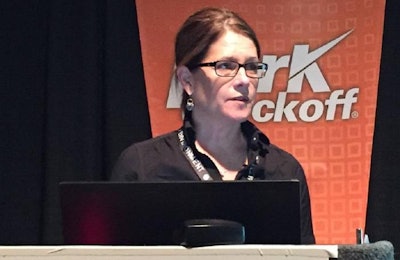
Labor negotiations along West Coast ports in the United States during late 2014 and early 2015 are still having adverse effects on the U.S. pork industry, said Becca Nepple, the National Pork Board’s vice president of international marketing.
Negotiations that began in 2014 between the International Longshore and Warehouse Union (ILWU) and Pacific Maritime Association (PMA) at the time contributed to a number of problems at ports on the West Coast, including congestion, slowdowns and terminal closures. While the two parties resolved their differences in February 2015 with a tentative agreement on a new five-year contract covering workers at all 29 West Coast ports, the economic effects of those port disruptions remain for the pork sector.
Speaking on June 9 at the World Pork Expo in Des Moines, Iowa, Nepple said that initially the port disruptions were a challenge to the industry in that a lot of products that were meant to go to Asia could not go to their intended destination and instead had to remain in the U.S. and be put into cold storage.
“You can imagine our exporters lost a lot of money over that situation, plus we lost a lot of trust,” Nepple said. The U.S. pork industry likes to tout itself as a reliable source for a high-quality, consistent product. However, when the pork products arrive to its planned destination, the U.S. lost that credibility in some foreign markets.
“Now that we’ve lost some of that trust, we have a lot to rebuild in some of our customer markets,” said Nepple.
















